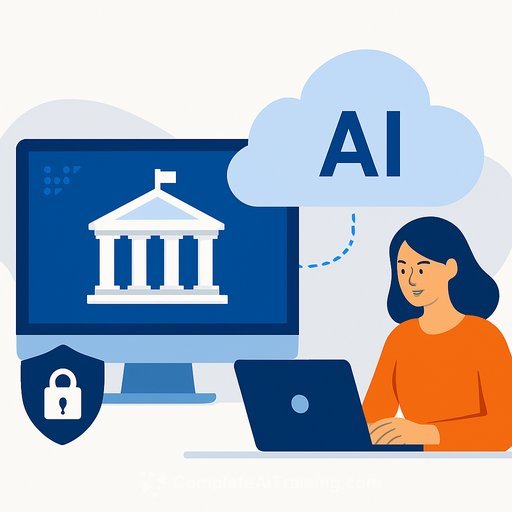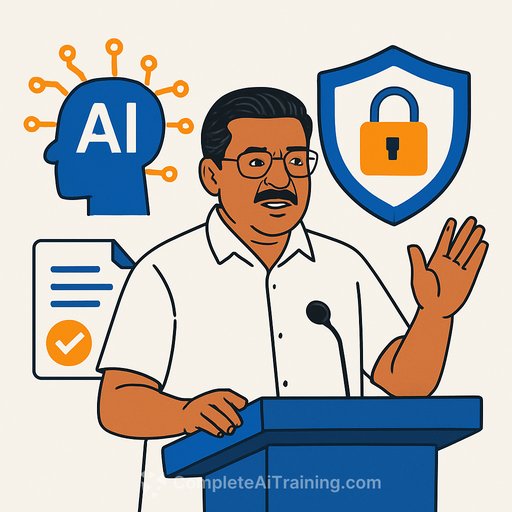Government Prepares AI-Capable Human Resources for the 2035 Demographic Bonus
Jakarta, 27 Oktober 2025, 12:31
Deputy Minister of Communication and Digital Affairs Nezar Patria underlined a clear priority: build AI skills across Indonesia's workforce to meet future challenges. With more generative AI tools entering daily work, he called for concrete steps-especially for younger workers-to ensure Indonesia benefits from the 2035 demographic bonus.
"Ini PR besar untuk kita semua membangun SDM yang mampu dan siap menghadapi tantangan baru di dunia yang penuh ketidakpastian," ujarnya. Ia menegaskan pentingnya kemandirian teknologi AI yang sejalan dengan budaya dan nilai bangsa, bukan sekadar mengadopsi nilai dari luar.
By 2035, citizens aged 16-65 are projected to reach roughly 70% of the population. Nezar also highlighted ongoing gaps-such as low university completion rates and shifting global geopolitics-that require agile policy and targeted programs to realize the Indonesia Emas 2045 vision.
Why this matters for government
- Public services will rely on AI-enabled workflows for speed, accuracy, and reach-especially in health, education, agriculture, and social protection.
- Without local talent, Indonesia becomes a buyer of imported tools, exposed to misaligned values and vendor lock-in.
- Demographic bonus is a window, not a guarantee. Skills, jobs, and policy have to move in sync to convert it into higher productivity and income.
Priority actions for ministries, agencies, and local governments (next 12 months)
- Baseline assessment: map current digital and AI skills across civil service roles; identify critical gaps by function (policy, procurement, data, operations).
- Training pathways: roll out tiered learning-AI literacy for all staff, tool-use for operations, and advanced tracks for data, ML, and policy specialists.
- Curriculum partnerships: work with universities, polytechnics, and industry to align courses with public sector needs (data governance, model evaluation, prompt practices, MLOps).
- Scholarships and apprenticeships: sponsor mid-career upskilling and create AI fellowships embedded in ministries and Pemda projects.
- Public sector AI sandbox: run controlled pilots with clear goals, guardrails, and evaluation methods before scaling.
- Data governance first: standardize data quality, access, and security; implement UU PDP practices across agencies.
- Local language focus: invest in Indonesian and regional-language datasets and models to improve relevance and inclusion.
- Procurement standards: mandate model transparency, evaluation reports, interoperability, and exit options to avoid lock-in.
- Compute access: negotiate shared cloud and on-prem capacity for research, training, and prototyping with clear cost controls.
- Ethics and risk: align with global best practice such as the UNESCO AI Ethics Recommendation; require impact assessments for high-risk use cases.
Program pipeline 2025-2035
- 2025-2026: Skills baseline, pilot trainings, AI sandbox, priority datasets, initial procurement standards.
- 2027-2029: Scale training nationwide, certify public sector roles, expand local-language models, shared compute hubs.
- 2030-2032: Deepen specialization (health, education, agriculture, security), strengthen MLOps in government, continuous evaluation frameworks.
- 2033-2035: Institutionalize AI capability in civil service systems, integrate with RPJPN milestones, focus on productivity outcomes.
Policy guardrails to keep front and center
- Fairness and inclusion: protect citizens from bias; ensure accessibility for diverse languages and regions.
- Security and privacy: enforce data minimization, role-based access, audit trails, and incident response plans.
- Transparency: publish model cards and evaluation summaries for public-facing systems.
- Accountability: assign clear owners for models in production; require periodic reviews and human oversight for sensitive decisions.
What success looks like
- At least 70% of civil servants achieve AI literacy; defined cohorts reach practitioner and expert levels.
- Time-to-service for key workflows (permits, benefits, health screening) reduced by 30-50% with quality maintained or improved.
- Procurements include clear benchmarks and exit terms; multiple compliant vendors to sustain competition.
- Locally relevant datasets and Indonesian/regional language models improve service accuracy and access.
Direct statements from leadership
"Kita butuh talenta digital di sektor AI yang mampu mengembangkan teknologi secara mandiri sesuai budaya bangsa."
"Kemandirian teknologi menjadi penting agar nilai yang kita pakai sejalan dengan kebutuhan Indonesia."
Where to start this quarter
- Run a quick skills audit in your unit; pick two workflows for low-risk AI pilots (e.g., document drafting, data cleaning).
- Enroll staff in structured learning paths by role to build momentum: AI courses by job and recognized certifications.
- Set procurement rules for any new AI tool: data handling, evaluation metrics, human-in-the-loop, and exit clauses.
The window to convert the 2035 demographic bonus into real outcomes is open now. With clear training pipelines, responsible policies, and local technology capacity, the public sector can lead-from central ministries to the village level.
Your membership also unlocks:






